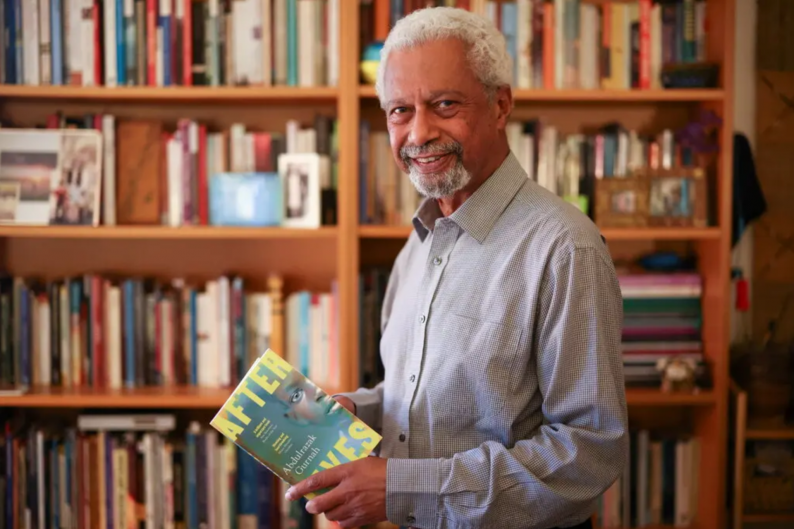What We're Reading This Week

Credit: Henry Nicholls/Reuters via The New York Times
Christopher Szabla, University of Hong Kong
Tom Menger, “Gewalt ohne grund,” Frankfurter Allgemeine Zeitung.
In early October, Abdulrazak Gurnah won the Nobel Prize in Literature in part “for his uncompromising and compassionate penetration of the effects of colonialism.” Between Gurnah’s birthplace of Zanzibar and residence in England, his works have been most prominently associated with the colonial experience in the British Empire. Yet Gurnah hardly ignored the German presence in East Africa. Tom Menger illustrates the author’s engagement with a history that has often taken a backseat to German actions in Europe and elsewhere in Africa, and demonstrates how his works go beyond discussing colonial violence alone and look more deeply into the ways German rule was unable fully to alter longstanding ways of life of East African communities.
Peter Neville-Hadley, “How the British bungled relations with China during the Qing dynasty and the Dutch took advantage. Or did they?” South China Morning Post.
In the history of British (and broader Western) relations with China, the 1793 Macartney embassy has figured as a central episode, one in which the Qing Empire rejected formal diplomatic ties and a closer trading relationship—possibly because of a (highly disputed) British refusal to kowtow to the emperor. The actual importance of the kowtow for Western embassies has been less well-examined, despite some histories treating the 1793 failure as the prelude to disputes that would lead to the First Opium War. A new book by Tonio Andrade resurrects accounts of a contemporaneous Dutch embassy that unquestionably kowtowed, providing some means for comparison. Yet whatever its significance for relations with the Qing, an analysis of the Dutch case, this essay argues, demonstrates that larger historical forces perhaps impeded a closer relationship with China regardless.
Peter Morgan, “Simón Bolívar: Theorist of empire?” Journal of the History of Ideas Blog.
“Strange as it might seem, Simón Bolívar belongs with Thomas Hakluyt, Edmund Burke, and James Mill as a British imperial thinker,” Peter Morgan writes in this provocative post. Despite being known as a consummate opponent of Spanish empire, Morgan argues, Bolívar pined for the intervention of the greatest power of the day during the Age of Revolutions to help liberate Latin America. More than this, however, Bolívar’s development of an argument for Britain to serve as a permanent arbiter among newly independent republics as much as their “protector” from Spain also extended new logics and means of British rule.
Collin Bernard, University of Wisconsin-Madison
Roundtable discussion on Paul Betts’ Ruin and renewal: Civilizing Europe after WWII, New York: Basic Books, 2020, H-Diplo Roundtable XXIII-5.
This round table brought together three reviews and an author response about Paul Betts’ new book Ruin and renewal. In this book, Betts explores the reconstruction of Europe after the end of the Second World War as an inward turn of the European “civilizing mission” as expressed in humanitarian work, law, religiosity, and various policies. All three of the reviewers reflect on the concept of “civilization” and its role as a historical concept and as an analytical frame.
Emma Rothschild, “Slavery en famille,” Aeon.
Drawing on her recent book, Emma Rothschild explores the history of 18th and 19th century France and its entanglements with slavery through the story of a single family in the small town of Angoulême. In this article, she gives a glimpse into the many interconnections between Marie Aymard and her descendants and the dynamics of capitalism, revolution, empire, and slavery.
Megan Maruschke, “Global studies gone global: Teaching the Age of Revolutions in Germany and Ethiopia,” Age of Revolutions.
This piece is a reflection on the practice of teaching global history told by Megan Maruschke. In it she reflects on teaching a global history of the age of revolutions class in Germany and Ethiopia to students from every corner of the world. Through this reflection, one gains insight into the challenges and benefits of global approaches to history within a globalized classroom.